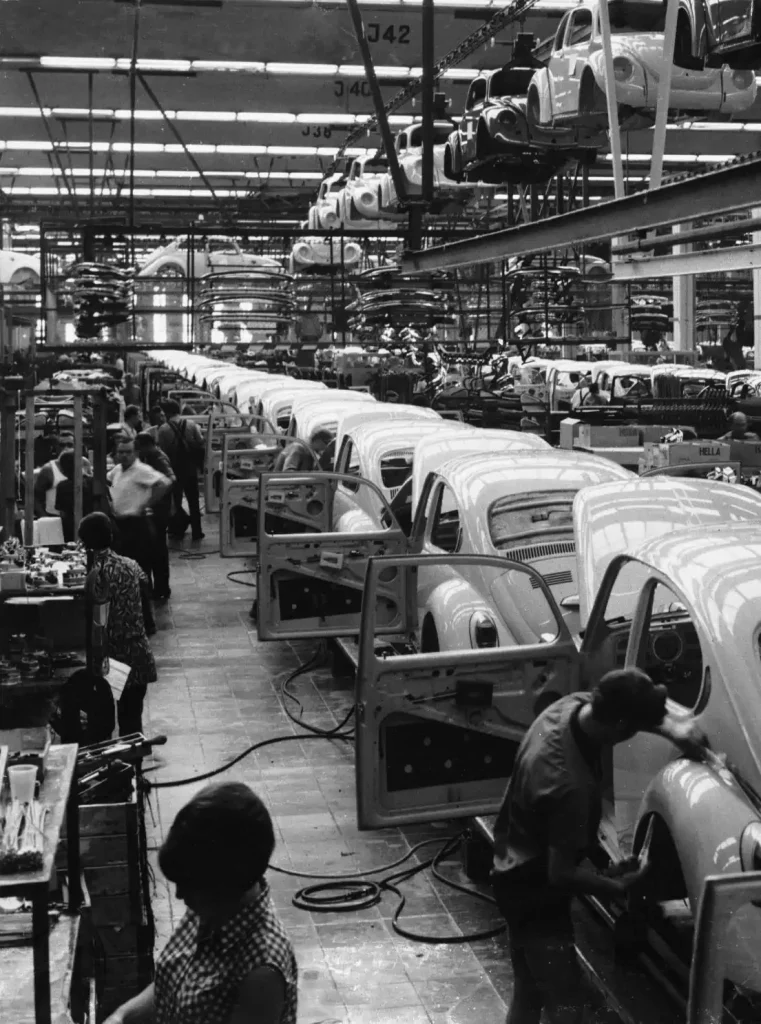I’m talking about the fact that, yes, machines were invented to serve people – starting at the assembly line from the first industrial robots to the automatic answering machine and then the smartphone. Machines and automation were supposed to do our work for us, to make our lives easier. We were promised that products would become cheaper and that we would gain more time and freedom.
But what has really been happening for the last two hundred years or so? People have been losing their jobs because machines make the job cheaper. Especially in so-called ‘low-skilled’ jobs. And after all this, did our nation gain freedom and leisure? No! They often became unemployed and had to take several, low-paid jobs to make ends meet. They lost their perspective and self-esteem in society during the process. What about products and services? Do machines make them cheaper and better? Well, I don’t want to deny progress. But let’s take a closer look: products have not become significantly cheaper, but the industry and its shareholders are now simply making bigger profits. And as for quality? Would anyone claim that mobile phones and automatic queues get you to your desired destination better and faster than in the past, when people still picked up the phone at the other end? Hardly.
Isn’t it often the case that we humans today have become more like unskilled workers and helpers for all those things that machines and automated systems can’t do? The ‘system’ tells the drivers of a logistics company which package should go where. But the humans have to lug it to Mrs. Müller on the fourth floor. The mobile phone is not smart enough to solve our problem. It only works because we are patient or desperate enough to spend minutes shuffling through audio menus. We should all be demonstrating with torches and pitchforks in front of corporate headquarters to get qualified people to answer the phone again.
We offer machines information and sometimes wait hours for something that a human being could have solved in a few minutes.
So it’s kind of true: the industry with all its automation has been promising mankind a better life for two hundred years. But we have never asked ourselves what ‘better’ means. Yes, we have more luxuries – without question. But are we happier? Are we enjoying more freedom? Are we living our dreams? Are we unleashing our creativity? Most likely, no. We’ve just traded one kind of stress for a new kind.
Now, the age of cognitive robotics is beginning. A technological quantum leap. For the first time in history, we will be able to combine the tangible, material achievements of the industrial age with the digital and virtual possibilities of the internet age. Yes, we can now build machines that serve us humans and give us that freedom and leisure we’ve been promised for so long.
But this time, we have to have the courage to redefine a few rules in our social interaction. We have to rethink. We can no longer be a meritocracy in which we measure a person’s worth by how much pressure and stress she or he can take, or how many jobs someone can do at the same time. When robots take over certain jobs, we have to make sure that this time, people really benefit from them. This will only work if robots can take over skilled jobs and make their worthwhile contribution to the social systems. We need to ask how society as a whole will benefit from technological progress in the future – not just a few corporate shareholders. After all, it is society as a whole – with its creativity, social achievements and challenges – that has made these advances and inventions possible in the first place.
There is no denying that robots – once referred to as ‘the future’ have become the now. But there are still many factors to think about, in order make this a real success story for all of humanity.

